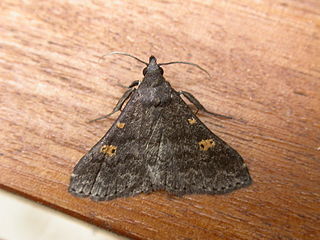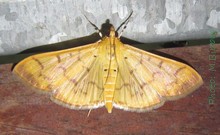
Taiwan, officially the Republic of China (ROC), is a country in East Asia, at the junction of the East and South China Seas in the northwestern Pacific Ocean, with the People's Republic of China (PRC) to the northwest, Japan to the northeast, and the Philippines to the south. The territories controlled by the ROC consist of 168 islands, with a combined area of 36,193 square kilometres (13,974 sq mi). The main island of Taiwan, formerly known as Formosa, has an area of 35,808 square kilometres (13,826 sq mi), with mountain ranges dominating the eastern two-thirds and plains in the western third, where its highly urbanised population is concentrated. The capital, Taipei, forms along with New Taipei City and Keelung the largest metropolitan area of Taiwan. Other major cities include Kaohsiung, Taichung, Tainan, and Taoyuan. With 23.2 million inhabitants, Taiwan is among the most densely populated countries in the world.
Mérida or Merida may refer to:

Yonaguni is a town located entirely on Yonaguni Island in Yaeyama District, Okinawa Prefecture, Japan. It is the westernmost municipality in Japan, and is known for billfish fishing and as a diving spot. In 1987, divers discovered the Yonaguni Monument, a rock formation that some believe may be man-made.

The lime-speck pug is a moth of the family Geometridae. It is a common species throughout the Palearctic region, the Near East and North Africa.

Neopseustidae is a small family of day and night-flying "archaic bell moths" in the order Lepidoptera. They are classified into their own superfamily Neopseustoidea and infraorder Neopseustina. Four genera are known. These primitive moths are restricted to South America and Southeast Asia. Their biology is unknown.

Endoclita is a genus of moths of the family Hepialidae. There are 60 described species found in eastern and southeast Asia and the Indian subcontinent.

The lackey moth is a moth in the family Lasiocampidae. It was first described by Carl Linnaeus in his 1758 10th edition of Systema Naturae. It is common across southern Britain and central Europe. Malacosoma species are notable for their caterpillars which are brightly coloured and form silken tents to regulate their temperature. Malacosoma neustria caterpillars are brown with blue, orange and white stripes. The adults are a fairly uniform brown. The larvae feed mainly on trees and shrubs from within their tents.

The Japanese house bat or Japanese pipistrelle is a species of vesper bat. An adult has a body length of 3.6–4.8 cm (1.4–1.9 in), a tail of 2.9–4.0 cm (1.1–1.6 in), and a wing length of 3.2–3.6 cm (1.3–1.4 in). It prefers to roost under the ceiling or inside the roof of old buildings. It is found across East Asia, from China and Taiwan into the Ussuri region, the Korean Peninsula, and Japan.

The Thyatirinae, or false owlet moths, are a subfamily of the moth family Drepanidae with about 200 species described. Until recently, most classifications treated this group as a separate family called Thyatiridae.

Adoxophyes orana, the summer fruit tortrix, is a moth of the family Tortricidae. It is found in the Palearctic realm and Taiwan.

Naarda is a large genus of erebid moths currently encompassing 108 species. Initially identified by Francis Walker in 1866, it is in the family Erebidae. Somewhat ruddy in appearance, this genus is distinguishable for its generally slender thorax and abdomen, and straight, porrect labial palpi. Most species are a light tan color, but shading can reach as deep as a charcoal, with muddy yellow, conspicuous reniform, orbicular stigmata featured on the forewings, sometimes reflected bilaterally superior.

Arctornis l-nigrum, the black V moth, is a moth of the family Erebidae. The species was described by Otto Friedrich Müller in 1764. It is found in the Palearctic realm and Asia.

Brahmaea wallichii, also known as the owl moth, is a moth from the family Brahmaeidae, the Brahmin moths, and one of its largest species. It is found in the north of India, Nepal, Bhutan, Myanmar, China, Taiwan, and Japan. The owl moth is nocturnal. The wingspan is about 90–160 millimetres.

Asota heliconia is a moth in the family Erebidae. It is found from the Indo-Australian tropics east to Queensland and the Solomons.

Acleris is a genus of moths belonging to the subfamily Tortricinae of the family Tortricidae. As of 2007, about 241 species were known.

Pyralis manihotalis is a moth of the family Pyralidae described by Achille Guenée in 1854.
Scopula actuaria is a moth of the family Geometridae. It was described by Francis Walker in 1861. It is found throughout the Oriental tropics of India, Sri Lanka, from Afghanistan and Taiwan to the southern Moluccas and Timor. It is also found on the Chagos Archipelago.
Cryptolechia is a genus of moths in the family Depressariidae.

Patania balteata is a moth of the family Crambidae. It was described by Johan Christian Fabricius in 1798. It is found across southern Europe, Africa and Asia, including Japan, Korea, Réunion, Madagascar, Taiwan, Thailand, Turkey and Ukraine, as well as New South Wales and Queensland in Australia. There is also an old record from Hawaii.
The Oriental serotine is a species of bat in the family Vespertilionidae. It is widespread and found throughout Asia.















